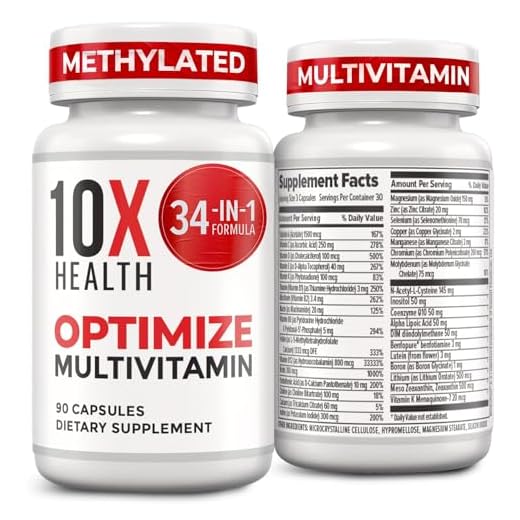







Taking multivitamins isn't your best bet for reducing the risk of chronic diseases like heart disease or cancer. Research shows little evidence that they provide significant benefits in disease prevention. While many people take them to fill diet gaps, studies of up to 450,000 adults revealed no notable effects. Instead, focusing on a balanced diet filled with fruits, vegetables, whole grains, and low-fat dairy is essential for overall health. This approach helps address nutrient needs more effectively. If you'd like to explore how to enhance your diet and improve health, there's more information available on effective strategies.
Key Takeaways
- Recent studies show multivitamins do not significantly reduce the risk of heart disease or cancer in adults.
- Evidence indicates multivitamins have no impact on mental decline or health outcomes in heart attack survivors.
- High doses of certain vitamins in supplements may even pose health risks rather than benefits.
- A balanced diet rich in whole foods is more effective for preventing chronic diseases than relying on multivitamins.
- Key nutrients should be obtained from food sources rather than supplements to support overall health and wellness.
Multivitamin Usage Trends
Multivitamin usage among American adults is quite prevalent, with about 50% regularly taking these supplements. This trend escalates among older adults, with usage rates reaching 70% among those aged 65 and older. You might find it interesting that Americans spend over $12 billion annually on vitamin and mineral supplements, reflecting a strong demand for these products. Many individuals opt for multivitamins like Kirkland Signature Daily Multi to address nutrient gaps in their busy lifestyles. Many people believe that multivitamins can play a role in the prevention of chronic diseases, including cancer. However, research indicates that the efficacy of these supplements in disease prevention is limited. Experts emphasize that a diet rich in nutrient-dense foods like fruits, vegetables, whole grains, and low-fat dairy should take priority over supplements for ideal health outcomes.
While multivitamin use can be beneficial for some, particularly those with specific nutrient deficiencies, it's crucial to evaluate lifestyle factors and overall dietary patterns. You should be aware that excessive intake of certain vitamins and minerals can lead to adverse effects, underscoring the importance of focusing on generally healthy eating habits. Ultimately, while multivitamins may offer some benefits, they shouldn't replace the value of a balanced, nutrient-rich diet.
Evidence From Recent Studies
Many people rely on multivitamins with the hope of enhancing their health and preventing chronic diseases. However, recent studies suggest that multivitamin use may not deliver the expected benefits. A thorough analysis involving nearly 450,000 adults found no significant reduction in heart disease or cancer risk associated with multivitamin supplementation. Additionally, a 12-year study of 5,947 men showed that multivitamins had no effect on mental decline, which raises questions about their impact on overall health outcomes. Furthermore, while certain vitamins like vitamin D are vital for specific health functions, such as bone health, multivitamins may not effectively address deficiencies in those nutrients. In research involving 1,708 heart attack survivors, those taking multivitamins experienced similar health outcomes as those on a placebo, further emphasizing that these supplements may not play an important role in preventing chronic diseases or reducing mortality risk. Moreover, multiple studies with extensive follow-ups indicate that multivitamins do not prevent early death. It's also important to note that high doses of certain vitamins, such as vitamin E and beta-carotene, could potentially be harmful. Given this evidence from recent studies, it is important to evaluate the role of vitamins and minerals in your health regimen and consider alternative preventive services for chronic disease management.
Importance of a Balanced Diet
A balanced diet plays an essential role in maintaining overall health and preventing chronic diseases. While multivitamin use can complement your nutrient intake, experts emphasize that a healthy diet rich in fruits, vegetables, whole grains, and low-fat dairy offers stronger health benefits. To support chronic disease prevention, you should focus on reducing saturated fat, trans fat, sodium, and sugar in your meals. Additionally, key nutrients such as folic acid's impact on fetal brain development and omega-3 fatty acids are critical for overall health.
The Dietary Guidelines for Americans recommend incorporating at least two servings of fruits or vegetables in each meal, ensuring you get the necessary nutrients your body craves. For women of child-bearing potential, supplementing with folic acid is essential—the CDC advises 400 micrograms daily to lower the risk of neural tube defects.
Additionally, don't overlook the importance of omega-3 fatty acids, found in fatty fish, walnuts, and flaxseed. These essential nutrients promote heart and brain health, making them critical components of your balanced diet. Prioritizing whole foods over pills can greatly enhance your nutrient intake and overall well-being, highlighting that a healthy diet is your best defense against chronic diseases.
Expert Dietary Recommendations
Prioritizing a balanced diet not only supports your overall health but also sets the foundation for expert dietary recommendations that can help prevent chronic diseases. Experts emphasize that relying solely on multivitamins isn't enough; you should focus on consuming three balanced meals daily to guarantee adequate nutrient intake. Aim for at least two servings of fruits or vegetables with each meal to boost your nutrient consumption.
Incorporating low-fat dairy and whole grains into your diet is essential for providing necessary vitamins and minerals that promote peak health. Health professionals recommend choosing fish or chicken as your primary protein sources while minimizing red meat to improve health outcomes. A diet rich in omega-3 fatty acids, found in fatty fish, walnuts, and flaxseed, is particularly beneficial for heart health and should take precedence over multivitamin supplements.
Understanding Nutritional Needs
Understanding your nutritional needs is fundamental for maintaining ideal health and preventing chronic diseases. A healthy diet rich in fruits, vegetables, whole grains, and low-fat dairy is essential for meeting these needs. The Dietary Guidelines for Americans recommend at least two servings of fruits and vegetables per meal to guarantee adequate nutrient intake. While multivitamin use can supplement your diet, it can't replace the benefits of nutrient-dense foods.
For women of child-bearing potential, folic acid supplementation is important, with a recommended daily intake of 400 micrograms to reduce the risk of neural tube defects during pregnancy. Additionally, iron in multivitamins can help address deficiencies that may arise due to menstruation or pregnancy.
Incorporating omega-3 fatty acids from sources like fatty fish, walnuts, and flaxseed is also significant. These nutrients support brain health and may contribute to overall wellness alongside a balanced diet. While multivitamins can play a role, focusing on a diverse, nutrient-rich diet is your best strategy for cancer prevention and reducing the risk of chronic diseases. Prioritize whole foods to align with your nutritional needs effectively.
Conclusion
In the garden of health, multivitamins can act as nourishing rain for your body, but they shouldn't replace the rich soil of a balanced diet. While studies suggest potential benefits in reducing chronic disease risks, they're most effective when combined with wholesome foods. Embracing expert recommendations can help you cultivate a vibrant lifestyle. So, think of multivitamins as a supportive companion rather than a miracle cure, guiding you toward a healthier, more balanced life.




